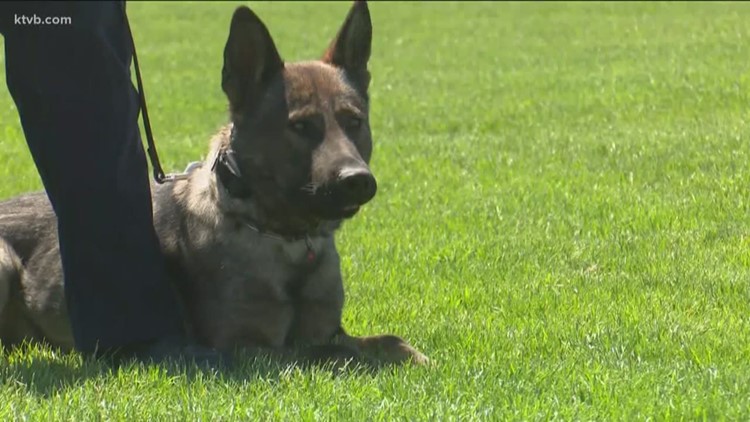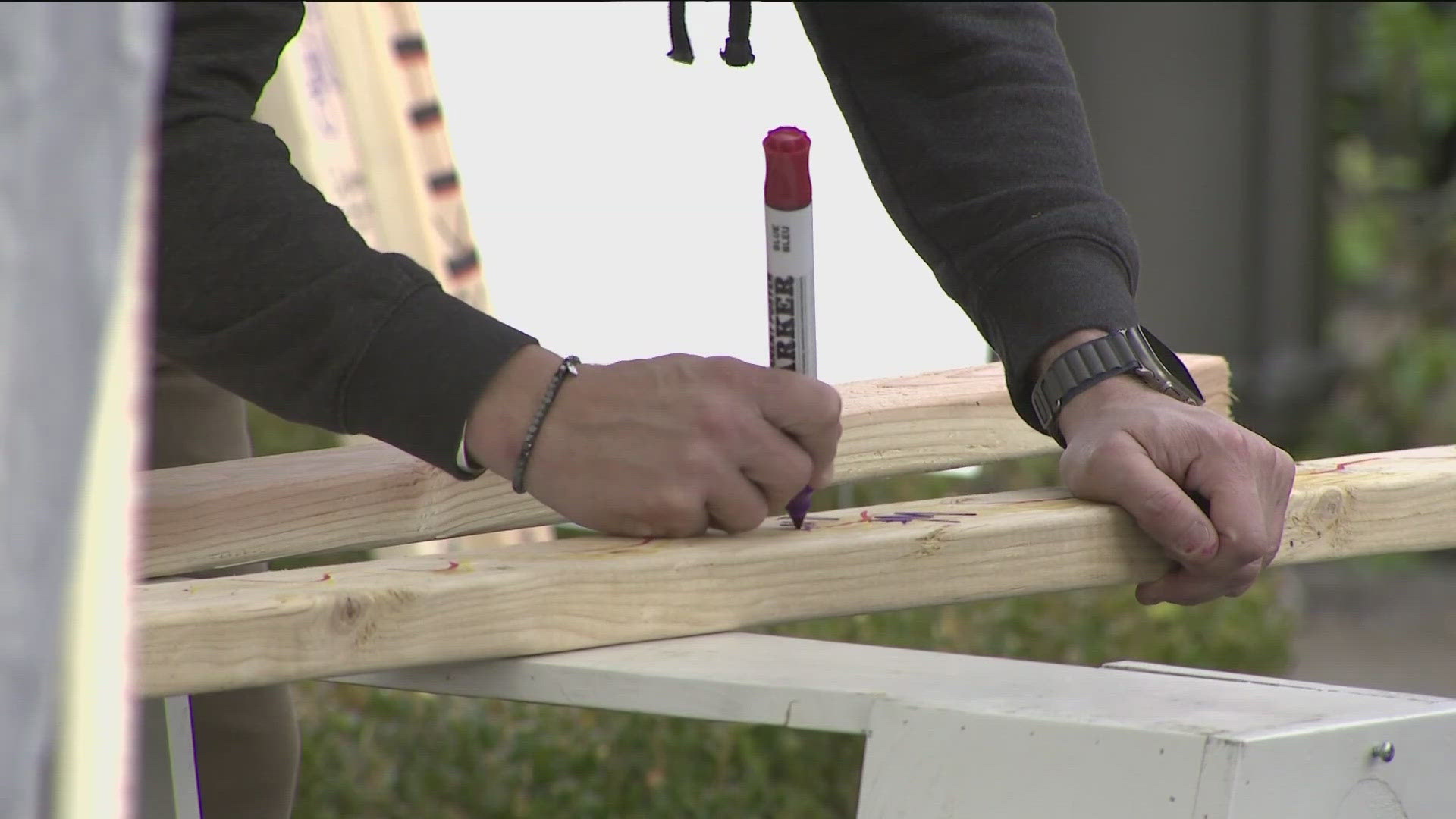BOISE, Idaho — The Idaho Supreme Court issued a unique decision this week -- and at the center of it all was one drug-sniffing dog.
On March 20, the higher court reversed a district court's denial to suppress evidence of drugs found in Kirby Dorff's car back in 2019, thus vacating his conviction and setting a precedent for what drug-sniffing dogs can do around someone's vehicle, and what happens afterward -- all because the dog jumped up on the car and placed his paws on the driver's side of the vehicle.
The Idaho Supreme Court ruled an unlawful search ensued due to the dog's contact with the car, which was "trespassing for the purpose of obtaining information."
What happened?
The story goes like this: Dorff was pulled over in Mountain Home for failing to use his turn signal. He told a Mountain Home police officer he didn't have a valid driver's license, the decision said. When the officer was talking to Dorff, another officer brought over a K-9 dog, known as Nero.
According to the court decision, Nero began sniffing around the car and directed his nose towards the wheels and undercarriage. The second time Nero walked around the car, he jumped up twice on the passenger side of the car. The third time, Nero jumped up and planted his front paws on the driver's side of the car.
The officer later testified that Nero "alerted" during this time, the decision said. That's when officers searched the car and found methamphetamine, and later searched Dorff's hotel room where they found more, the decision said -- officers arrested Dorff, charged him with possession with intent to deliver, possession of methamphetamine and possession of drug paraphernalia.
Dorff moved to suppress the evidence that was found based on a "warrantless search" because, he said, Nero had trespassed onto his vehicle.
The motion to suppress the evidence was denied. Nero’s contacts with the vehicle did not amount to “intermeddling" so there was really no "search" since Nero didn't trespass, the district court said.
So, Dorff appealed to the Idaho Supreme Court saying his Fourth Amendment rights, which protects people from unreasonable searches and seizures, were violated.
What did the Idaho Supreme Court say?
Drug dogs can sniff and alert around a vehicle, the court said in their decision, because that "free air" isn't owned or occupied by anyone.
But, Nero stood on and "occupied" Dorff's car, the Idaho Supreme Court said, without Dorff's consent.
To determine this, the court said as their starting point they decided the entire vehicle itself is a constitutionally protected area because the person has rights to it -- and then decided that a "trespass" does not always qualify as a search, unless it is used to obtain information.
"And as we have said before, 'there is no asterisk to the Fourth Amendment excusing the unconstitutional acts of law enforcement when they are accomplished by means of a trained dog,'" the court wrote. "Thus, although it was accomplished by Nero, it was law enforcement who violated Dorff’s dignitary interest in maintaining the inviolability of his chattel."
The majority also wrote that even if Nero did trespass, "there is no dispute" he did it in an attempt to find something or obtain information in the first place.
They concluded in the decision that the district court erred when they said Dorff's Fourth Amendment rights were not violated.
Not every justice agreed with this decision, however.
Idaho Supreme Court Justice Gregory Moeller said a dog entering a vehicle would be a violation of the Fourth Amendment -- not making contact with the vehicle.
"I cannot agree that an unreasonable search or a physical intrusion occurred just because Nero’s paws briefly touched the exterior of Dorff’s vehicle," Moeller wrote.
Chief Justice Richard Bevan also wrote a dissenting opinion, saying, "Reasonableness thus requires us to consider the degree of the government intrusion, not to simply suppress all evidence where any intrusion occurred."
Bevan wrote that the decision "converts" the analysis of the Fourth Amendment into a "liability system" because he believes that the officer's intent of handling the dog and the extent of how the dog intruded are irrelevant.
Regardless, Dorff's conviction on the drug charges were vacated, the district court's denial of the motion to suppress was reversed and the case was remanded back to district court.
Watch more Local News:
See the latest news from around the Treasure Valley and the Gem State in our YouTube playlist:



